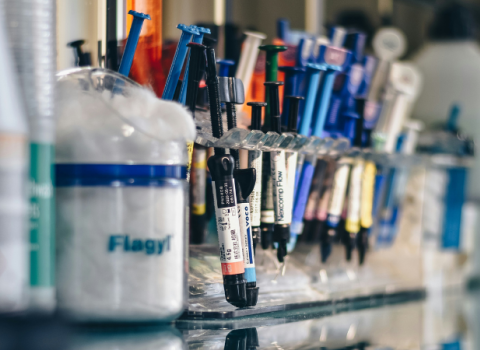Grant
Antibody specialist MorphoSys and drug discovery services company Proteros Biostructures have been awarded a €850,000 grant by the German Federal Ministry of Education and Research, to develop a new technology platform for the automated characterisation of antibody-antigen-complexes.
MorphoSys will provide relevant antigen and antibody molecules, while Proteros will provide advanced X-ray technology and computational chemistry know-how to solve the crystal structure of these complexes. Access to high resolution antibody-antigen-complex structures is expected to allow a faster and more efficient engineering of therapeutic antibodies.
The programme is part of the Munich biotechnology initiative “m4 - Personalised Medicine and Targeted Therapies - A New Dimension in Drug Development in the Munich Region.” Earlier this year the project was given Leading-Edge Cluster status in a German government funding competition.
In the first project, the two companies will analyse MorphoSys’s proprietary anti-inflammatory antibody MOR103 and how it binds to its corresponding antigen GM-CSF. MOR103, a fully-human antibody against GM-CSF (granulocyte macrophage-colony stimulating factor), is being developed for treating inflammatory diseases, including rheumatoid arthritis.
Due to its diverse functions in the immune system, GM-CSF can be considered a target for a broad spectrum of anti-inflammatory therapies. The program is currently being evaluated in a European clinical phase Ib/IIa trial in patients with active rheumatoid arthritis.
“Early clarification of the precise interaction between antibody and antigen is very valuable information in drug discovery, as it can help in identifying the most promising lead candidate, or in generating improved follow-up compounds,” said, Marlies Sproll, Chief Scientific Officer of MorphoSys AG.
“The analysis of antibody-antigen interaction at atomic resolution efficiently guides the further evolution of antibodies,” said Torsten Neuefeind, CEO of Proteros. “In the joint programme, a technology platform will be developed which combines the strengths of combinatorial biology and rational structure guided approaches.”





 A unique international forum for public research organisations and companies to connect their external engagement with strategic interests around their R&D system.
A unique international forum for public research organisations and companies to connect their external engagement with strategic interests around their R&D system.